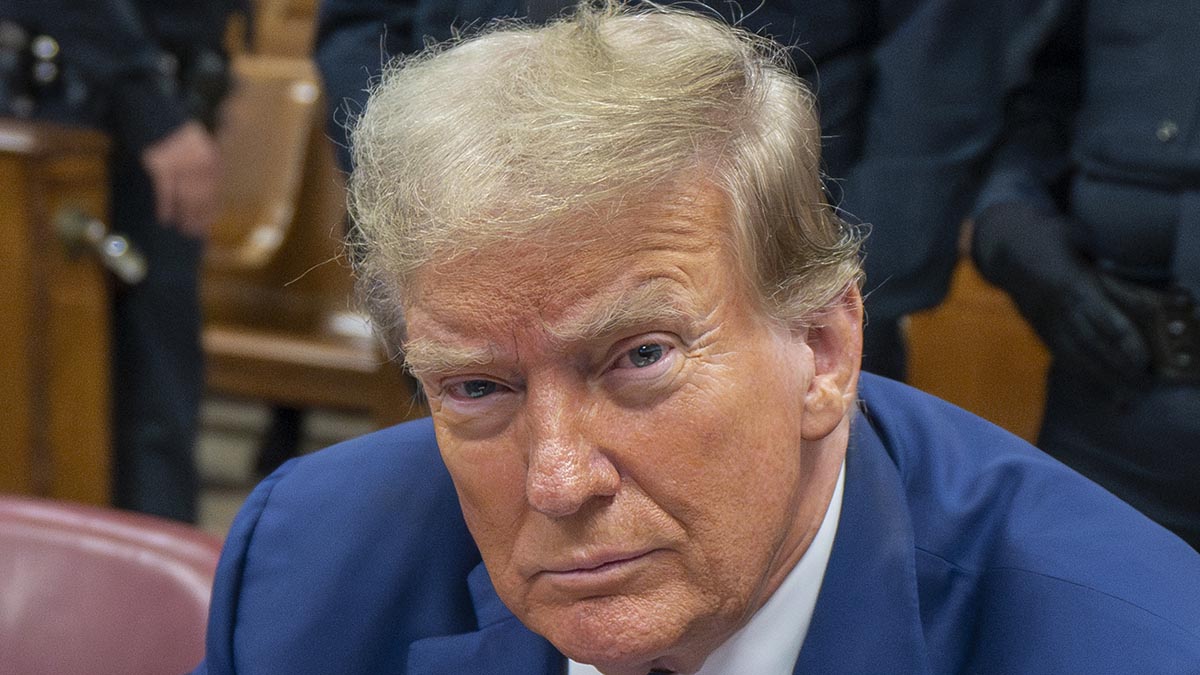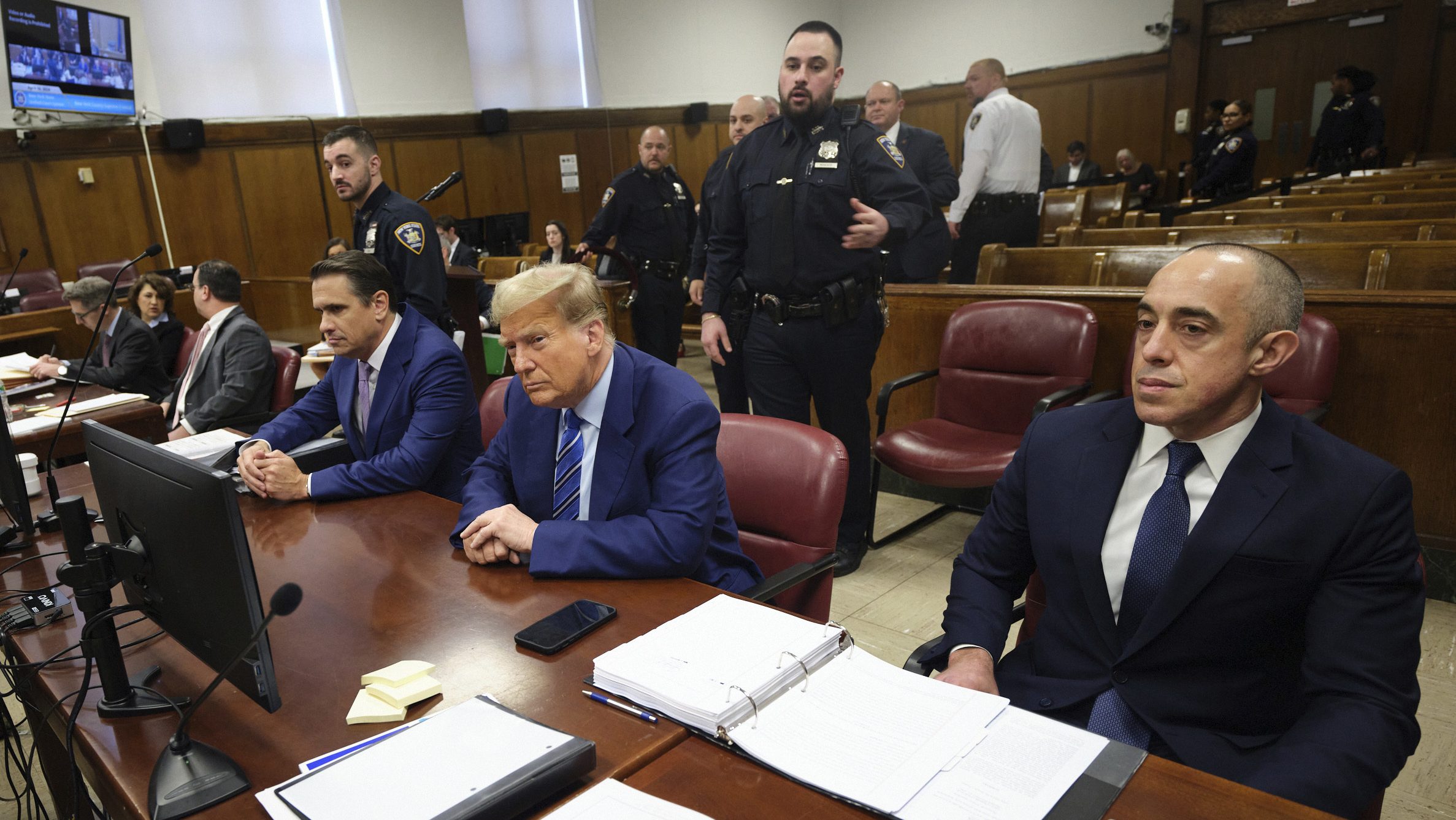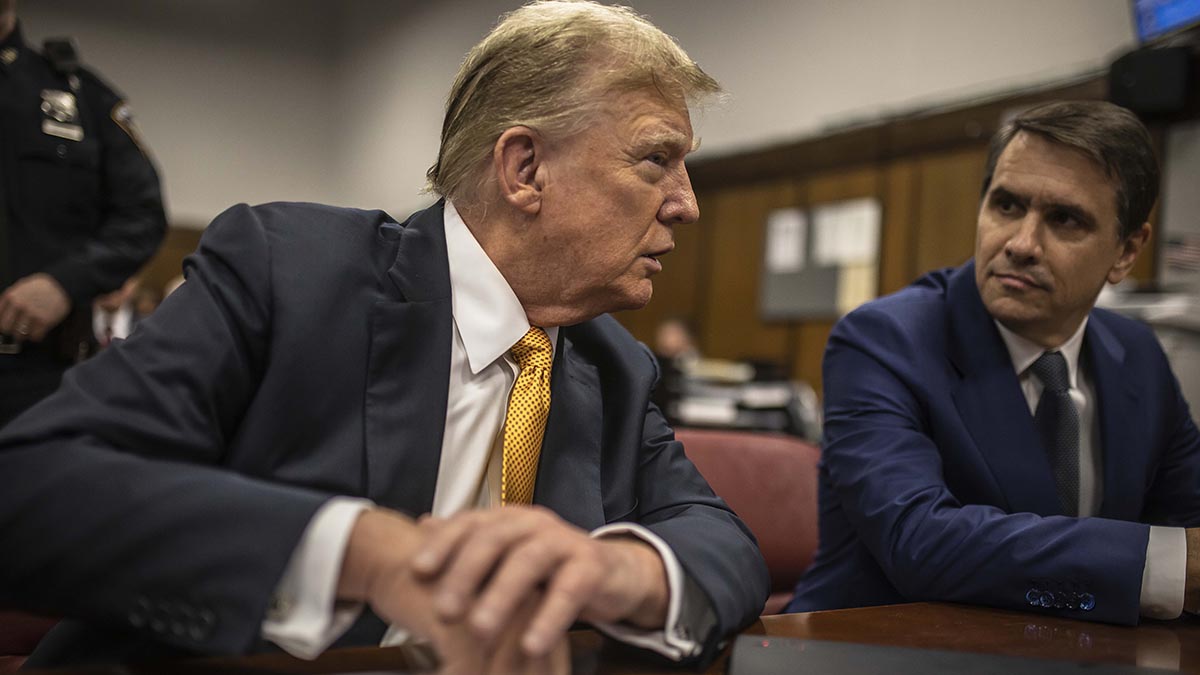The jury in Donald Trump’s hush money trial ended its first day of deliberations without a verdict Wednesday but asked to rehear potentially crucial testimony about the alleged hush money scheme at the heart of the history-making case.
The 12-person jury was sent home around 4 p.m. after about 4 1/2 hours of deliberations. The process is to resume Thursday, when jurors are expected to rehear the requested testimony and at least part of the judge's legal instructions meant to guide them on the law.
Jurors also asked to rehear at least part of the judge's instructions meant to guide them on the law. The notes sent to the judge with the requests were the first burst of communication with the court after the panel of seven men and five women was sent to a private room just before 11:30 a.m. to begin weighing a verdict.
“It is not my responsibility to judge the evidence here. It is yours,” Judge Juan M. Merchan told jurors earlier in the day before dispatching them to begin deliberations, reminding them of their vow during the selection process to judge the case fairly and impartially.
It's unclear how long the deliberations will last. A guilty verdict would deliver a stunning legal reckoning for the presumptive Republican presidential nominee as he seeks to reclaim the White House while an an acquittal would represent a major win for Trump and embolden him on the campaign trail. Since verdicts must be unanimous, it's also possible that the case ends in a mistrial if the jury can't reach a consensus after days of deliberations.
Trump struck a pessimistic tone after leaving the courtroom following the reading of jury instructions, repeating his assertions of a “very unfair trial” and saying: “Mother Teresa could not beat those charges, but we'll see. We'll see how we do."
He remained inside the courthouse during deliberations, where he posted on his social media network complaints about the trial and quoted legal and political commentators who view the case in his favor. In one all-capital-letters post, he proclaimed that he didn't even “know what the charges are in this rigged case,” even though he was present in the courtroom as the judge detailed them to jurors.
He did not testify in his own defense, something the judge told jurors they could not take into account.
Trump is charged with 34 counts of falsifying business records at his company in connection with an alleged scheme to hide potentially embarrassing stories about him during his 2016 Republican presidential campaign.
Get a weekly recap of the latest San Francisco Bay Area housing news. Sign up for NBC Bay Area’s Housing Deconstructed newsletter.
The charge, a felony, arises from reimbursements paid to then-Trump lawyer Michael Cohen after he made a $130,000 hush money payment to porn actor Stormy Daniels to silence her claims of an extramarital sexual encounter with Trump in 2006. Trump is accused of misrepresenting Cohen’s reimbursements as legal expenses to hide that they were tied to a hush money payment.
Trump has pleaded not guilty and contends the Cohen payments were for legitimate legal services.
To convict Trump, jurors must find beyond a reasonable doubt that he falsified or caused business records to be entered falsely and did so with the intent to deceive and the intent to commit or conceal another crime.
Under the law, if they do not find that prosecutors have proven one or both of those elements, they must acquit Trump. Prosecutors allege Trump falsified business records to hide breaches of campaign finance law and a violation of a state election law alleging a conspiracy to promote or prevent an election.
Just hours before the start of deliberations, Trump posted another all-caps rant about the trial, the judge and Cohen on his social media network before leaving Trump Tower for the courthouse Wednesday morning.
He called it a “Kangaroo Court!” and falsely claimed that the judge barred him from defending himself by claiming that his alleged actions were taken on the advice of his then-lawyer, Cohen. Trump’s lawyers in March notified the court that they would not rely on that defense.
Who's who in the Trump hush money trial
Key players in the historic first criminal trial of a former U.S. president.
Source: AP
“There was no crime, except for the bum that got caught stealing from me!” Trump said, apparently referring to Cohen. He added, again in all capital letters, “In God We Trust!”
The jurors — a diverse cross-section of Manhattan residents and professional backgrounds — often appeared riveted by testimony in the trial, including from Cohen and Daniels. Many took notes and watched intently as witnesses answered questions from Manhattan prosecutors and Trump’s lawyers.
Jurors started deliberating after hearing final pitches from the prosecution and defense in the form of closing arguments and after getting instructed in the law by the Merchan, who offered some guidance on factors the panel can use to assess witness testimony, including its plausibility, its consistency with other testimony, the witness’ manner on the stand, and whether the person has a motive to lie.
But, the judge said, “there is no particular formula for evaluating the truthfulness and accuracy of another person’s statement.”
The principles he outlined are standard but perhaps all the more relevant after Trump’s defense leaned heavily on questioning the credibility of key prosecution witnesses, including Cohen.
Any verdict must be unanimous. During deliberations, six alternate jurors who also sat through every minute of the trial will be kept at the courthouse in a separate room in case they are needed to replace a juror who falls ill or is otherwise unavailable. If that happens, deliberations will start anew once the replacement juror is in place.
Associated Press writer Michelle L. Price in New York contributed to this report.




